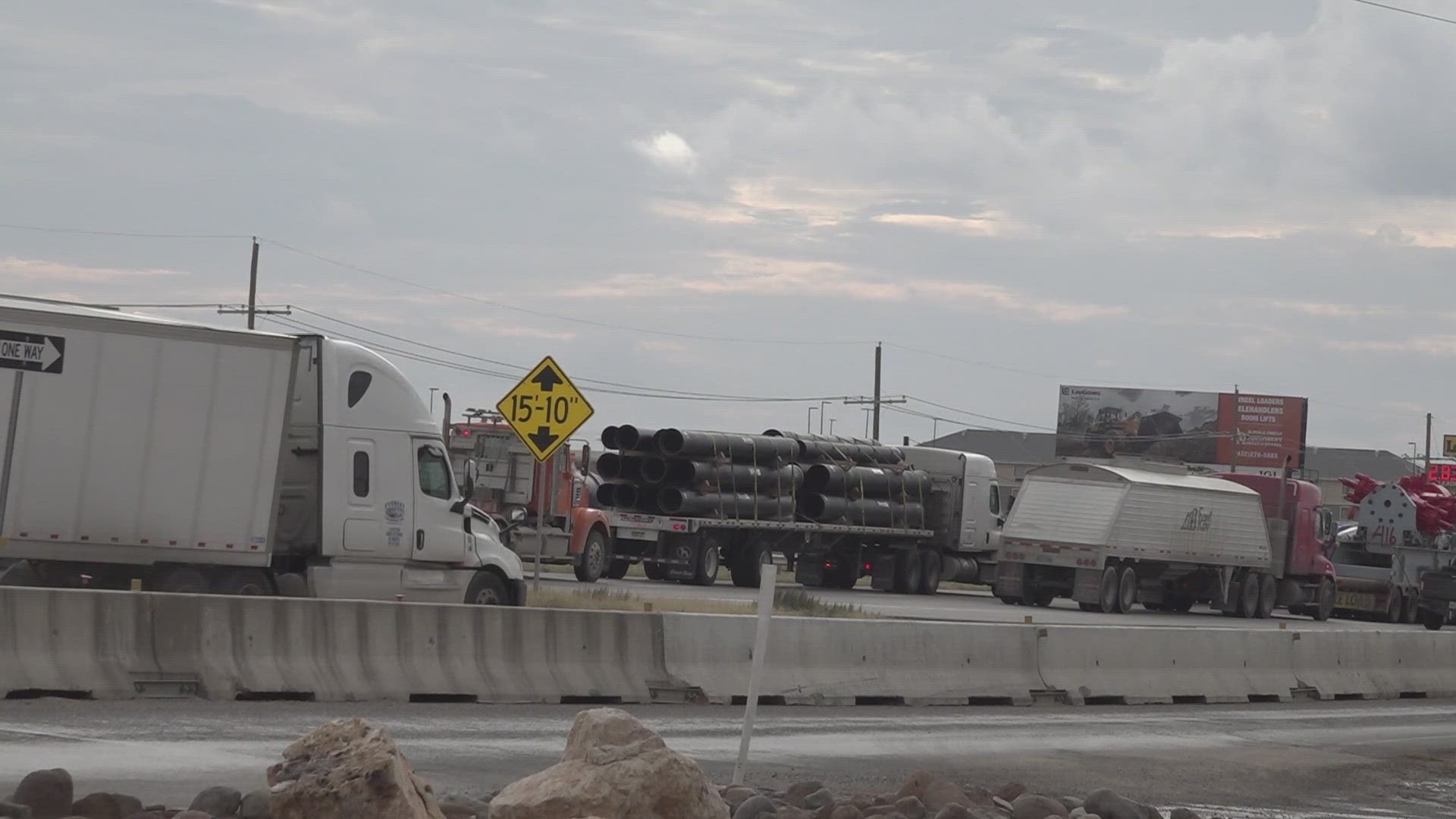TEXAS, USA — Crashes in the Permian Basin are more severe than in any other part of Texas, according to a new report.
The Permian Road Safety Coalition is a nonprofit organization based out of Midland that focuses on road safety. It partnered with the Texas Transportation Institute to analyze the crash frequency and severity across 20 counties in the Permian Basin.
The study found that the Permian Basin crash rate of 14.7 deadly crashes per 1,000 total crashes is nearly two times higher than the statewide average.
According to Michael Smith, the managing director for the PRSC, the data was not unforeseen.
"We know there is a problem, this has been a long-lasting problem in the Permian Basin," said Smith.
The report examines crash data from 2018-2022 across counties including Ector, Midland, Andrews, Borden, Crane, Culberson, Dawson, Gaines, Glasscock, Howard, Loving, Martin, Pecos, Reagan, Reeves, Terrell, Upton, Ward, Winkler and Yoakum County.
From 2018-2022, Ector and Midland County witnessed the most fatal crashes with a total of more than 200.
“One of the things that we were able to glean that was a bit surprising is what we believe are some of the things that could fix or drive down the number of fatal crashes very quickly," Smith said. "One is wearing a seatbelt. We found that in 30% of the fatal crashes there were no seatbelts being used."
PRSC also advises driving properly by bringing down speeds and being careful about switching lanes in construction zones.
Eliminating distractions such as eating in the car, using a cellphone or manipulating GPS can also bring down the number of deadly crashes, according to Smith.
“Another one on top of that is what we call sort of the distraction of the oil field," Smith said. "The oil field moves at the speed of business. And it's a necessity that, in order to deliver the energy that the America and the world needs, it requires quick response. It requires enormous movements have equipment and manpower in and out of the oil field.”
According to Smith, the PRSC is also targeting some companies that may not have the budgets or resources they need to help build a safety culture.
“The operators in the Permian Basin have very strong safety cultures, and it is baked into their DNA to be safe," Smith said. "Our goal is to make sure that we're going the next layer down to that subcontractor level and even those below them. We're talking about companies that might have four or five, six trucks, companies that need to better understand the safety culture so that they can put it in place over time.”

